atheism
Bearing Witness: My Journey Out of Mormonism
Integrity requires each of us to bear witness with honest hearts.
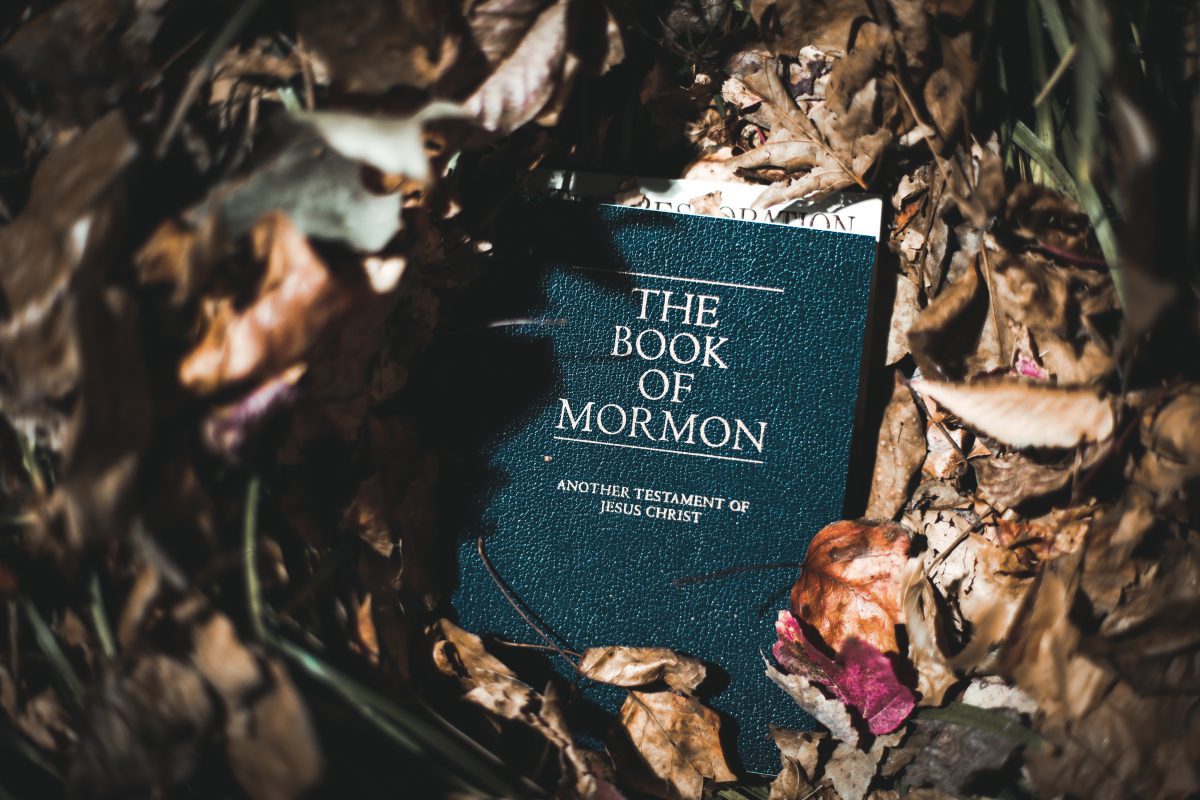
My parents named me after Spencer W. Kimball, who was the prophet of the Church of Jesus Christ of Latter-Day Saints at the time I was born. The church derives its informal name, Mormonism, from the Book of Mormon, which is purportedly the work of Hebrew prophets in the ancient Americas (though it’s not clear where, exactly). Mormons believe that Joseph Smith, the church’s founder, translated the Book of Mormon from golden tablets that the angel Moroni helped him discover. Near the end of the Book of Mormon is a passage known as “Moroni’s promise”:
And when you should receive these things, I would exhort you that ye would ask God, the Eternal Father, in the name of Christ, if these things are not true; and if ye shall ask with a sincere heart, with real intent, having faith in Christ, he will manifest the truth of it unto you, by the power of the Holy Ghost (Moroni 10:4).
Many people say that God has fulfilled this promise to them. What it’s like to receive an affirmative answer varies. Or at least descriptions of it vary—precisely what occurs in the privacy of people’s minds is difficult to know. Mormon scriptures describe the spirit as a “Burning in the bosom” (Doctrine and Covenants 9:8). In Sunday school, I was told to expect a “still, small voice,” though it would probably be internal, not literally audible. Some report the burning in the bosom, others hear the voice and still others feel a sense of peace. All who receive affirmative answers agree that the spirit is recognizable and that it confers knowledge whatever its specific manifestation.
On the first Sunday service of every month, the faithful are invited to “bear testimonies”—share their convictions—from the pulpit. Some smile cheerfully and say “Good morning, brothers and sisters”; others, overcome with spiritual emotion, start sobbing before they so much as adjust the mic. What typically follows in either case is a series of knowledge claims, for example: “I’d like to bear my testimony. I know this church is true. I know that Joseph Smith was a prophet. I know that Gordon B. Hinckley”—the prophet for most of my youth—“is a prophet today.” The testimony-bearers always conclude with “In the name of Jesus Christ, amen.” The congregation always echoes: “Amen.”
My family attended church almost unfailingly, so I was very familiar with this ritual as a kid. Over time I noticed that testimony-bearers tended to use the same cadence and intonation when they spoke. The words “I’d like to bear my testimony; I know this church is true,” which were always said in a particular way, seemed to be wearing a deep groove into my brain. I wasn’t very old before I came to dislike testimony meetings. I couldn’t bear to see adults cry in front of other adults. One especially excruciating testimony stands out in my memory: an old woman tearfully described how she had prayed for relief for the puss-filled spider bite on her cheek. Thankfully, the swelling went down—evidence, she thought, of God’s concern for her.
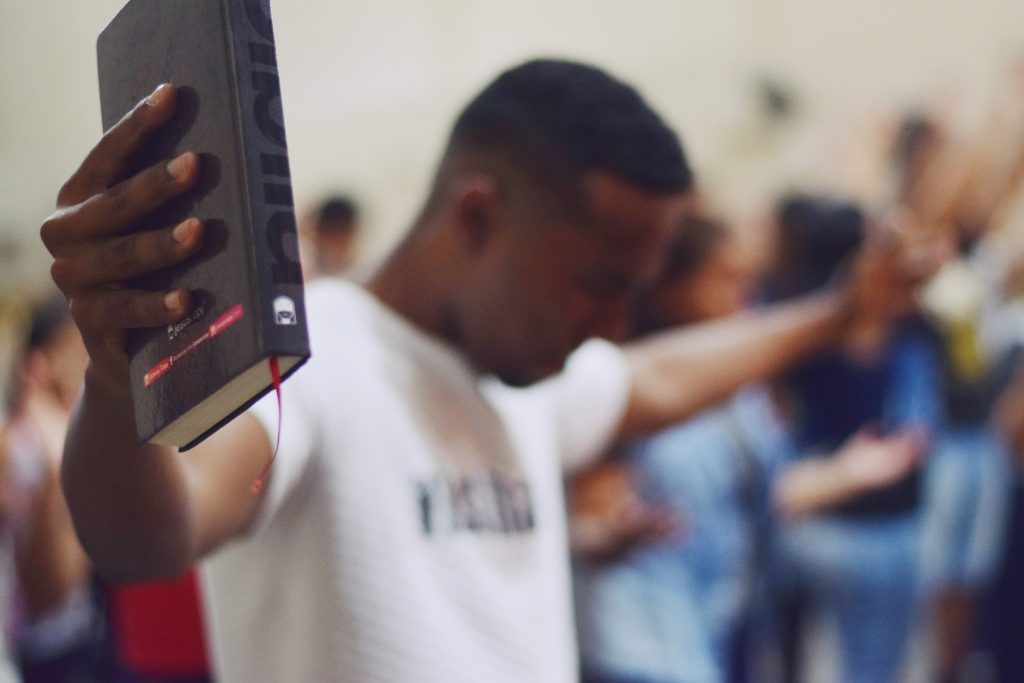
Sometimes when the weepy ones started, I would rest my forehead on the pew in front of me and wait for them to finish unbosoming. My mom would tap me on the shoulder and tell me to sit up straight. I might have silently prayed for God to hurry one or two of them along. The “testimonies” of the young children, the smallest of whom could barely speak, disturbed me more. Sometimes kids would go to the pulpit themselves. In other cases, parents carried them to the pulpit, held them up to the microphone and whispered words in their ears, which they repeated: “I’d like to bear my testimony; I know this church is true” in that same cadence. This was common though the church leadership officially frowned on it. The congregation seemed to find it adorable. But did they, or anyone, believe that young children were in a position to testify to us?
Notwithstanding the small fissures that were beginning to form at the edges of my belief system, aspects of the religion appealed to me. I liked the idea that righteous humans could be Godlike, increasing in wisdom and power for all eternity. I wanted to believe this. When I was twelve years old, I finished reading the Book of Mormon on my own for the first time. I prayed for personal revelation when I got to Moroni’s promise, and felt disappointed when I could discern none of the signs I’d been told to expect. I did feel calm—unsurprisingly, because I was quietly praying and introspecting—but not remarkably so. When I reported the null results to my parents and Sunday school teachers they reassured me. It didn’t happen the first time for everyone. But it didn’t happen the second time, either. Or the third time.
Adults told me that the spirit probably was bearing witness to me, I just wasn’t recognizing it. Curiously, the signs were supposed to be compelling enough to justify accepting all of the church’s teachings and yet so subtle that they could easily be missed by an attentive person. Occasionally, and with increasing frequency as I got older, a more insulting explanation was offered: perhaps I had not prayed “with a sincere heart, with real intent, having faith in Christ.” I thought that my prayers were sincere, though occasionally I second-guessed myself. Maybe deep down I didn’t want a testimony and the responsibility of bearing it, which might involve crying in front of people.
By the time I was 14, I was the only one of my peers in church who had never born his testimony. I felt like I had the spiritual equivalent to late-onset puberty (an ironic malady for someone with a prophetic namesake!). Adults would ask, with a note of concern, whether I’d ever born my testimony and whether I was intending to serve a two-year proselytizing mission when I turned 19, an obligation for males. I told them honestly that I intended to serve a mission and that I would bear my testimony as soon as I received it. They’d often reply with well-meaning words: “a testimony comes in bearing it.” In other words, if I would bear my testimony to others as an act of faith, belief in what I was saying would follow.
That couldn’t be right, I felt instinctively. Surely I should know that my beliefs were true before I asserted them for the edification of others. I even had a scriptural basis for my objection. I understood the decalogue’s prohibition on bearing false witness to forbid testimony given in bad faith, even if what was said happened to be true. Some of my superiors, who thought I was overthinking things, assured me that the Holy Ghost would flood me with certainty the moment I started speaking. But I would still have to walk to the pulpit, signaling that I had a testimony to bear. Wouldn’t that constitute a kind of false witness? And what happened if the certainty didn’t come immediately? The temptation to continue anyway would be strong, and then I would be speaking falsely.
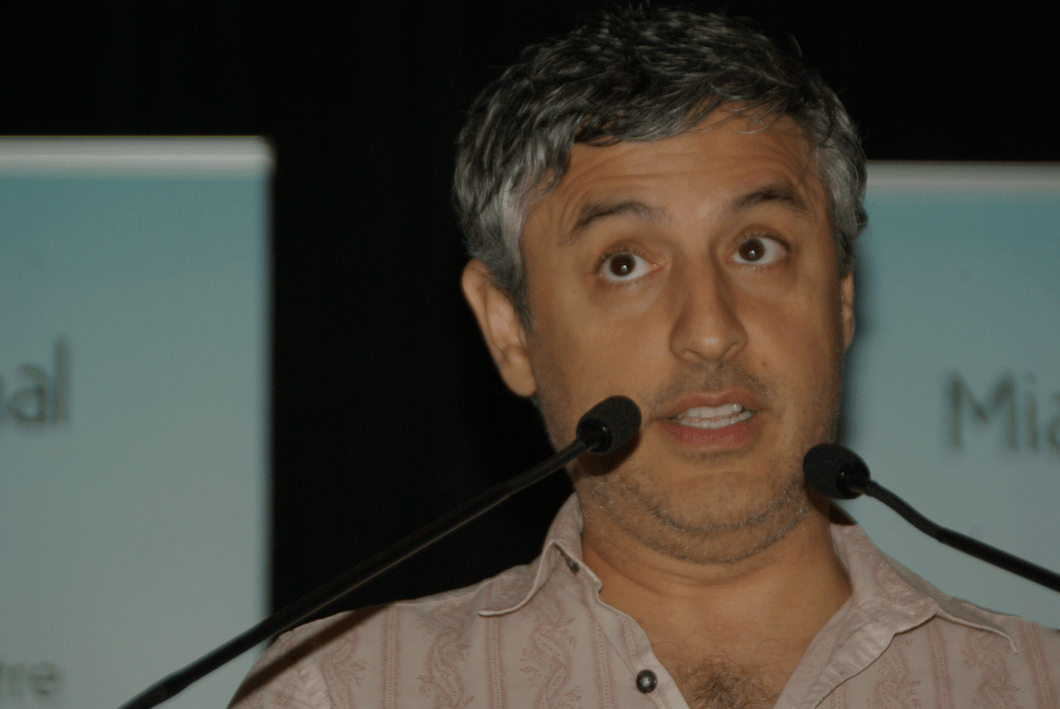
One Sunday when I was 15, push came to shove, so to speak. My dad was serving as bishop of the Pocatello, Idaho 3rd Ward. Mormon bishops preside over the regular church service, more like a Catholic priest than a bishop in that faith. Since there is no paid clergy in the Mormon church, at least not at the lower levels, laypeople are “called” to serve in various positions. In the case of bishop that was for about four years. On this Sunday, whoever had been asked to give the sermon, another distributed responsibility, finished early. My dad, who was seated behind the pulpit facing the congregation, not in the pew with me, my mom and my three younger siblings, announced that we would now hear the testimonies of three people. The last name he said was “Brother Spencer Case.”
The first two dutifully bore their testimonies. They probably said the regular stuff in that familiar cadence. I don’t know. I wasn’t listening. I just sat there in horror. He’d given me no warning. I looked at the carpet, which I recall was a reddish-orangish color. The second speaker sat down. It was my turn. But I didn’t budge from the pew. The church was quiet. Whether it was my fault or not, I still didn’t think I had a testimony to bear. Maybe my mom gave me some words of encouragement, but I don’t remember for sure. I only remember sitting there for the eternity of a minute or so, feeling the weight of the congregation’s collective expectations bear down on me. Then I started crying, my head in my hands.
At that point, dad came to my rescue. He rose to the pulpit and apologized to me and the congregation: “Sorry for putting you on the spot, Spencer.” Then he bore his testimony in my place. I may not have known that the gospel was true—yet—but he had no doubt. Someday neither would I. Temporarily, I was reassured. I looked forward to the time when I had his certainty. My doubts would dissipate like fog, liberating my mind from anxiety. I don’t remember being very angry with him, at least not for very long. I knew that his intentions were good. Besides, he apologized in front of the congregation. But my doubts persisted, even mounted, and so did the social pressure to sweep them under the rug.
At the beginning of ninth grade, which I believe commenced a few weeks before this incident, I enrolled in Mormon “seminary,” the only subject that I took five days a week every year that I was in high school. This wasn’t training for a clerical career, as the name might suggest, since no such career track exists in Mormonism. Mormon seminary is rather a four-year high-school level religious instruction class for Mormon students. Because religious instruction is not allowed in public schools, Mormon students in Pocatello High School and other high schools with large Mormon populations take an hour of “release time” every school day, during which they are no longer enrolled in the public school system, then cross the street to a church-owned building.
The teachers, dressed in suits and ties, tended to be young and popular with the students. I especially liked Brother Walker, who played guitar and sang songs to help us remember scripture verses. We played games like “scripture chase”; players would receive a prompt like “flee temptation,” then we would scramble to be the first to open our Bibles to Genesis 39:13. (Joseph rejects the adulterous entreaties of Potiphar’s wife.) Winners could do this in less than ten seconds. We were encouraged to chase down our testimonies with similar tenacity. The teachers bore their testimonies in class, as did students, the most enthusiastic of whom also attended extra-early morning testimony meetings in church attire, though I refused. Girls were advised against dating anyone who did not have a strong testimony.
I sometimes lingered after class to talk to the teachers about the “testimony problems” that gnawed at my interior, now compounded by the terrestrial fear of being left without a mate. They listened sympathetically but had no satisfying answers. Some suggested that I go on a mission to find my testimony, which sounded to me like “a testimony comes in bearing it.” I felt like I didn’t relate to the other Mormon students, many of whom usually seemed assured in their faith. Some seemed indifferent, but I don’t recall meeting anyone who seemed to struggle with it like I did. Many of my non-Mormons friends found me hilariously conservative and sheltered, easily shocked by any talk of sex, marijuana, or pornography. One of my seminary teachers had declared masturbation to be “a sin like unto murder.”
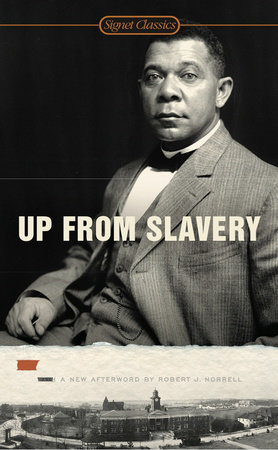
In my junior year, I read Booker T. Washington’s autobiography, Up From Slavery, and unexpectedly came across a passage that spoke to my situation. Washington described how literate African-American men in the Reconstruction period would frequently receive calls to preach at church: “Without warning the one called would fall upon the floor as if struck by a bullet, and would lie there for hours, speechless and motionless.” Word of these events traveled quickly and served as great advertising for a career in ministry. Washington wrote that “While I wanted an education badly, I confess that in my youth I had a fear that when I had learned to read and write well I would receive one of these ‘calls’; but, for some reason, my call never came.”
Although Washington dismisses these apparently lying Reconstruction preachers as “immoral men”—a harsh judgment, given the difficult circumstances they found themselves in—it’s possible that some believed that their calls were veridical, or perhaps came to believe that after acting the part for a long enough time. I never believed that most of the people who said they had testimonies were lying, but I had begun to worry that subtler forms of self-deception were at work. A Mormon teenager hoping to receive a testimony, partly for social reasons, might feel an ordinary sense of peace and think to himself, “Ah, that must be the Holy Ghost.” He repeats this to others, dropping important qualifications, and gradually becomes more convinced himself.
Once I discovered the gap between religious experience and justified belief—something that dawned on me only gradually—it was the beginning of the end of my identification with the Mormon church. I continued to attend seminary and graduated at the end of senior year. The certificate attesting to this is somewhere at my parents’ house. I defended the church when I heard non-Mormon friends criticizing it, and even proselytized to a couple of them, dimly aware that it was myself I wanted to convince, to no avail. Faith seeped inexorably from my mind like water through cupped hands.
After high school I enrolled in Idaho State University and transferred to a singles ward. I carpooled to church with a couple of sisters in their twenties (they were actually sisters, though all female members of the church are referred to as “sisters,” just as male members are “brothers”). The older one said she was good at feeling the spirit. I asked her to point it out to me if she ever felt its presence while we were together. One day she did. It was at a “fireside,” which is a church meeting that takes place Sunday evening after the ordinary service. The choir was singing beautifully and she sat next to me on the pew. “Now,” she said, “the spirit is so strong in this room right now. It’s like electricity! Can’t you feel it?”
“I’m sorry,” I said, after pausing. “I just don’t feel it.”
I continued to discuss my doubts with my dad and with my new bishop, Bishop Olson, both of whom admonished me to go on a mission. At that point my departure would have been imminent. I recall one phone conversation with Bishop Olson in which he inadvertently nudged me to part ways with the church. He said the fact that I was still in the church having these conversations with him, seeking the truth, was proof that I really did know that it was true. Otherwise, what was the sense in my still going to church? Why would I continue seeking? He had a point. He ended the phone call with “See you in church this Sunday.” I never went back.
When I was 18, at the beginning of my second semester of college, I enlisted in the U.S. Army Reserve. This was in part to delay the decision about whether or not to go on a mission, though this route looked increasingly unlikely as my belief dwindled and I gravitated toward atheism. It’s somewhat surprising in retrospect that I never considered joining another religion. I assumed that they would all commit me to believing unjustifiable claims and that sooner rather than later I would again be plagued with doubt. Comfortless atheism came with at least one consolation: having no faith, I would be subject neither to the intellectual burden of maintaining it, nor the pain of losing it.
Shortly after my 20th birthday, I deployed to Iraq with the 207th Mobile Public Affairs Detachment. My primary responsibility was to be a photographer and writer for the base tabloid, Anaconda Times. Logistical Support Area Anaconda, where I spent most of my time, was subject to regular mortar attacks. Although they rarely injured anyone, they could be unsettling. An alarm system capable of detecting the trajectory of the mortars would sound if they were expected to land within a certain radius—I think 1,000 feet. When you heard this, you took cover, preferably in the concrete above-ground shelters created for this purpose, and waited to hear—and sometimes, when they were close enough, feel—the impact. The insurgents usually fired two at a time, sometimes more. The most unnerving seconds came right after a close one had hit, but before its companions had.
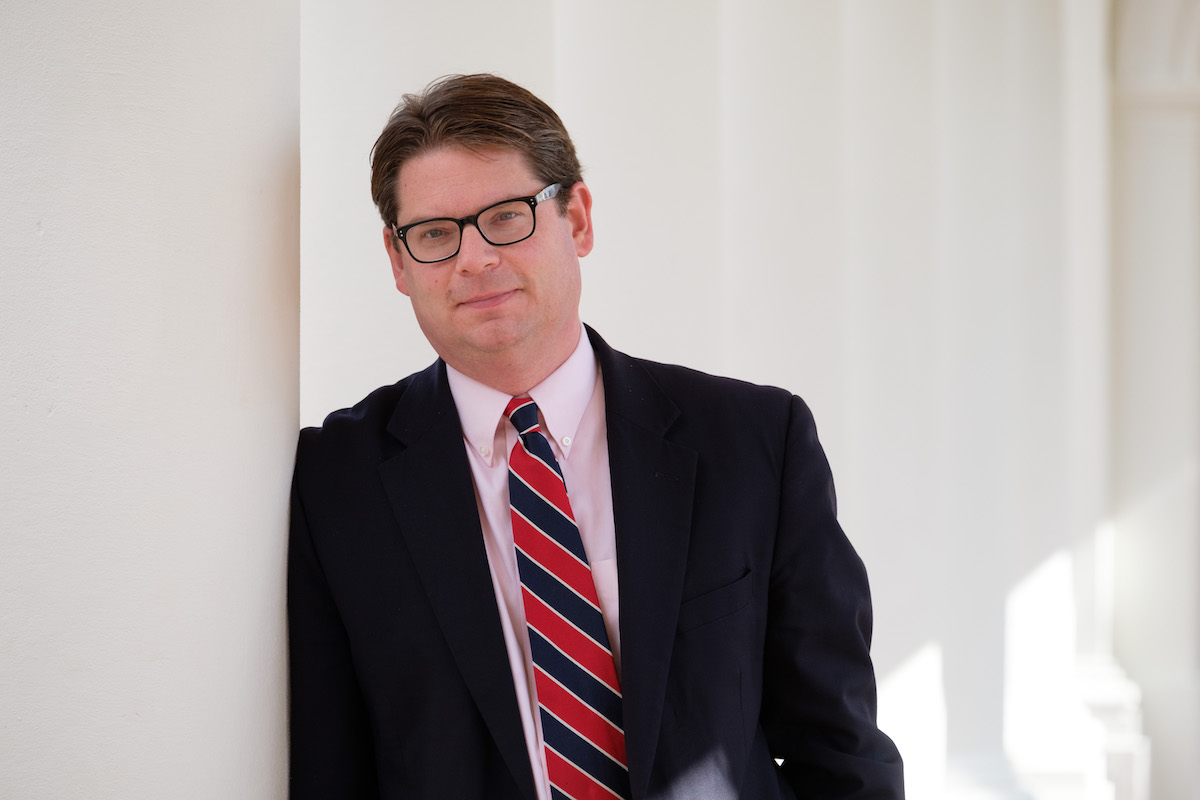
During one of those attacks, alone in my sandbag-reinforced trailer, I momentarily felt tempted to pray for safety. I believe “tempted” is the right word. I got down on my knees, but then decided I would be capitulating to a base and irrational instinct toward self-preservation. I was struck anew by the amount of capricious destruction in the world. How could such a world be the subject of a divine plan? Where was the evidence of a loving personal God? Mortars land where they land, irrespective of human welfare. I had, of course, known that there was badness in the world. But sensing the precariousness of my own existence, the contingency of everything that mattered to me, caused a paradigm shift. Perhaps this episode amounted to a kind of anti-religious experience, the opposite of what I’d once hoped for.
The other mortars impacted. There was a prolonged quiet, followed by the “all clear” signal. It came from above like the voice of God. The angel of death had passed me by. Not only that, it had left me a bit more alive than I had been. Having finally capitulated to the skepticism I had so long feared and resisted, I discovered the limits of my own skepticism. I’d been told my whole life that morality depended on religion; I feared that if I abandoned religion, I’d be in nihilistic free fall. But it soon became clear that my sense of right and wrong, that there was a moral dimension to reality, wasn’t going to desert me. I continued to believe that some things were right while others—such as bearing false witness—were wrong. I’d pushed away a false pillar and the ceiling hadn’t come crashing down on top of me.
What have I taken away from Mormonism? Certainly, the nursery songs that remain lodged in my brain. I refuse to believe that there’s an ex-Mormon alive anywhere who can’t hum the tune of “Give Said the Little Stream.” My philosophical interests, particularly in questions of ethics, owe something to this background, too. As far as that’s concerned, Joseph Smith said one thing that I still agree with: “One of the grand fundamental principles of ‘Mormonism’ is to receive truth, let it come from whence it may.” I’m still a non-believer, though I never officially left the church because that would have needlessly pained my family. I love them and they love me despite my unofficial apostacy and innumerable oddities.
One recollection, and I think only one, still kindles anger. When I was around 17-years-old, I attended an “Especially for Youth” weekend church event, which featured a series of speakers. One of them, a seminary teacher from somewhere else, told the congregation of hundreds of Mormon teenagers that he was tired of hearing youths confide their doubts. He said that he now gave “rude” responses to such enquiries, such as: “Why don’t you know it? If you don’t know it’s true by now, it’s your fault! Go and find out that it’s true before you come back to me.” He raised his hand to illustrate how he could barely restrain himself from hitting the person asking the question. The congregation laughed heartily, though the speaker insisted that he was serious. I certainly didn’t find it funny.
I feel proud when I recall my refusal to bear false witness. That pride is tinged with sadness, however, since so many others appear guilty. Mormons are not so different from other humans in this respect. Most of us fear that our most cherished beliefs might turn out to be wrong. We want to hear people affirm the things we want to believe. We feel annoyed or disturbed when others fail to do this. We profess beliefs to encourage conformity as well as to exchange information—behold social media virtue signaling, much of which resembles “bearing witness” from a digital pulpit. We are haunted by the delusion of epistemic safety in numbers, the idea that if enough people agree with us, our convictions must be true. We might vanquish doubt in crowds, but we will never find knowledge this way. Integrity requires each of us to bear witness with honest hearts.






